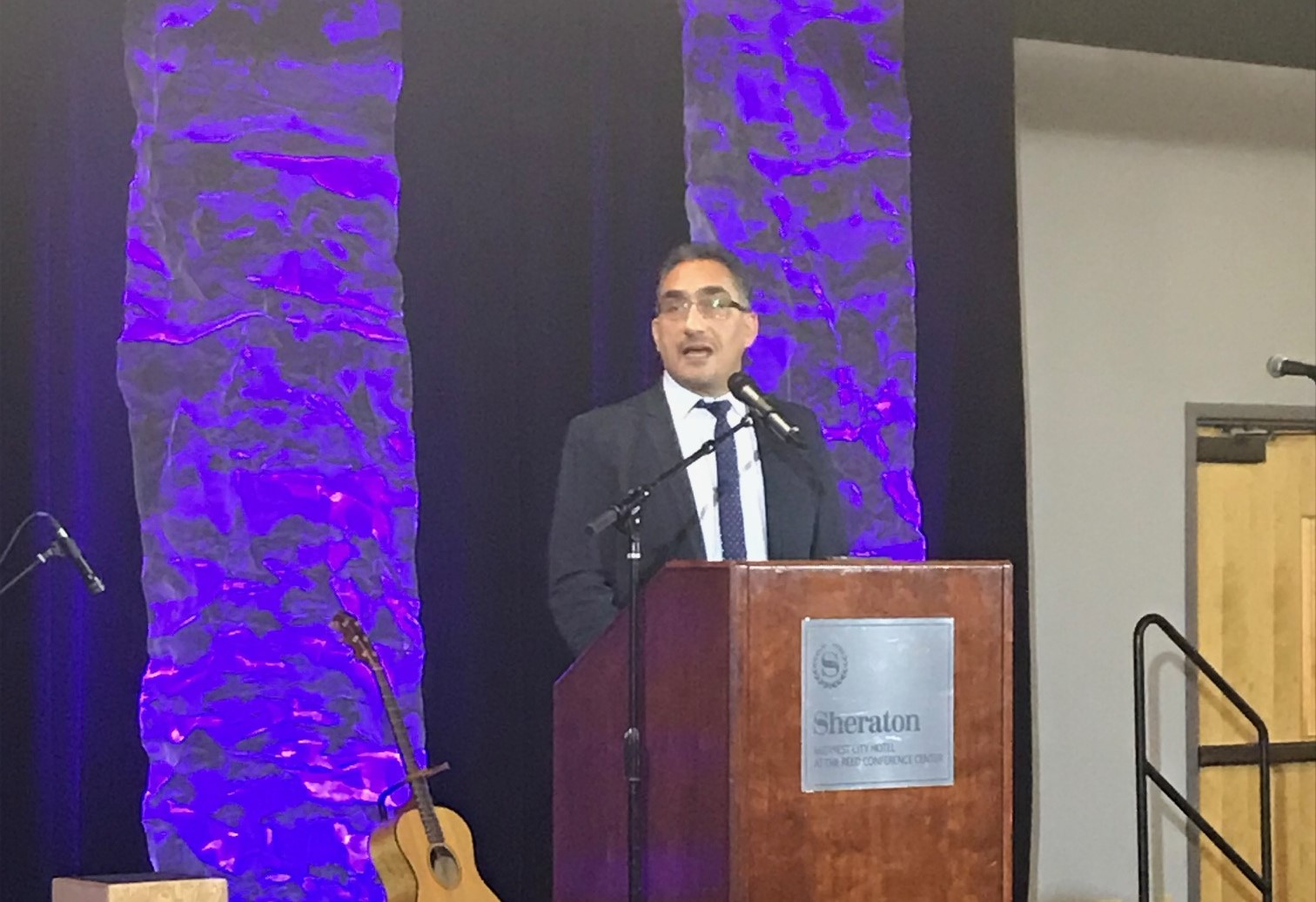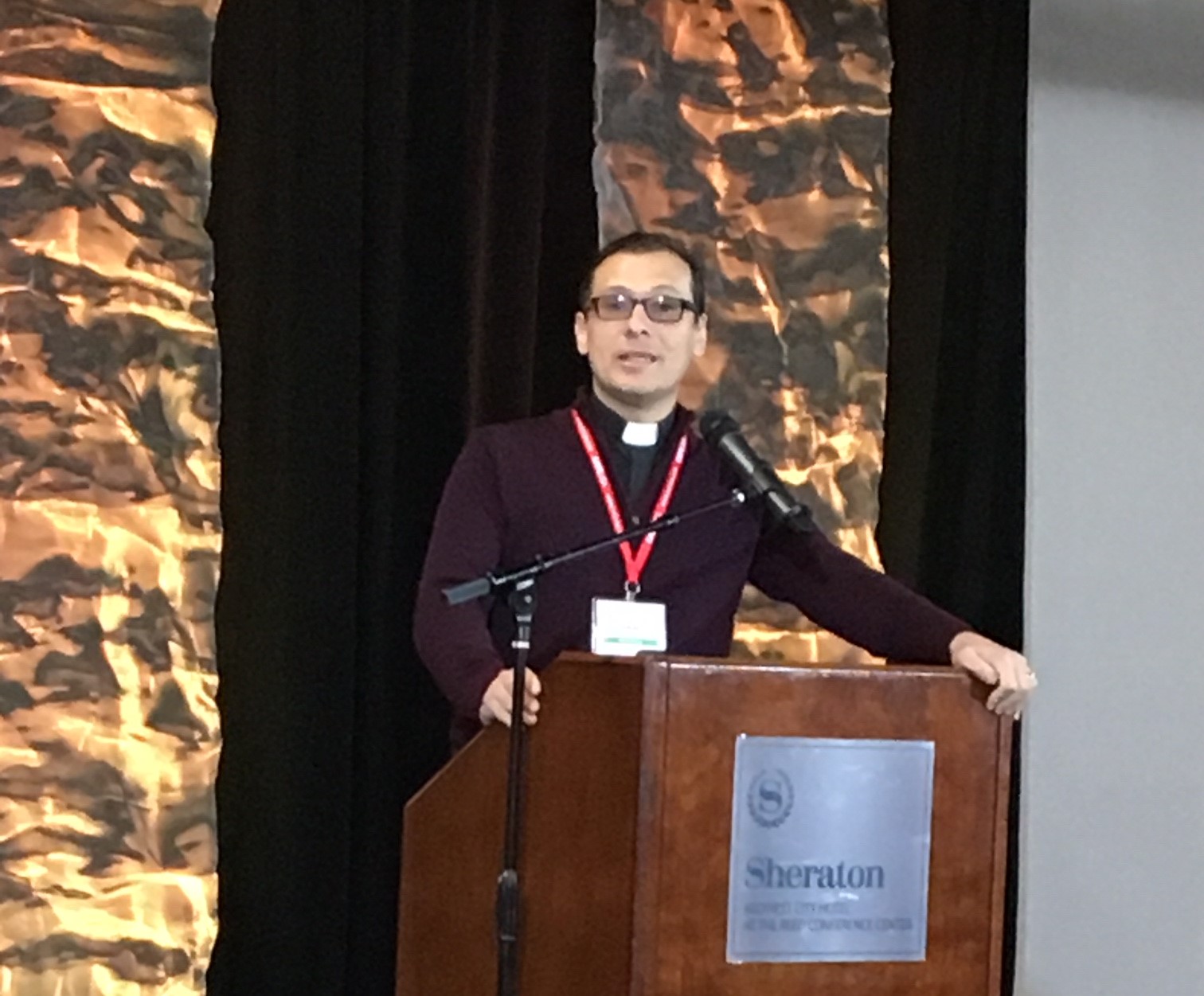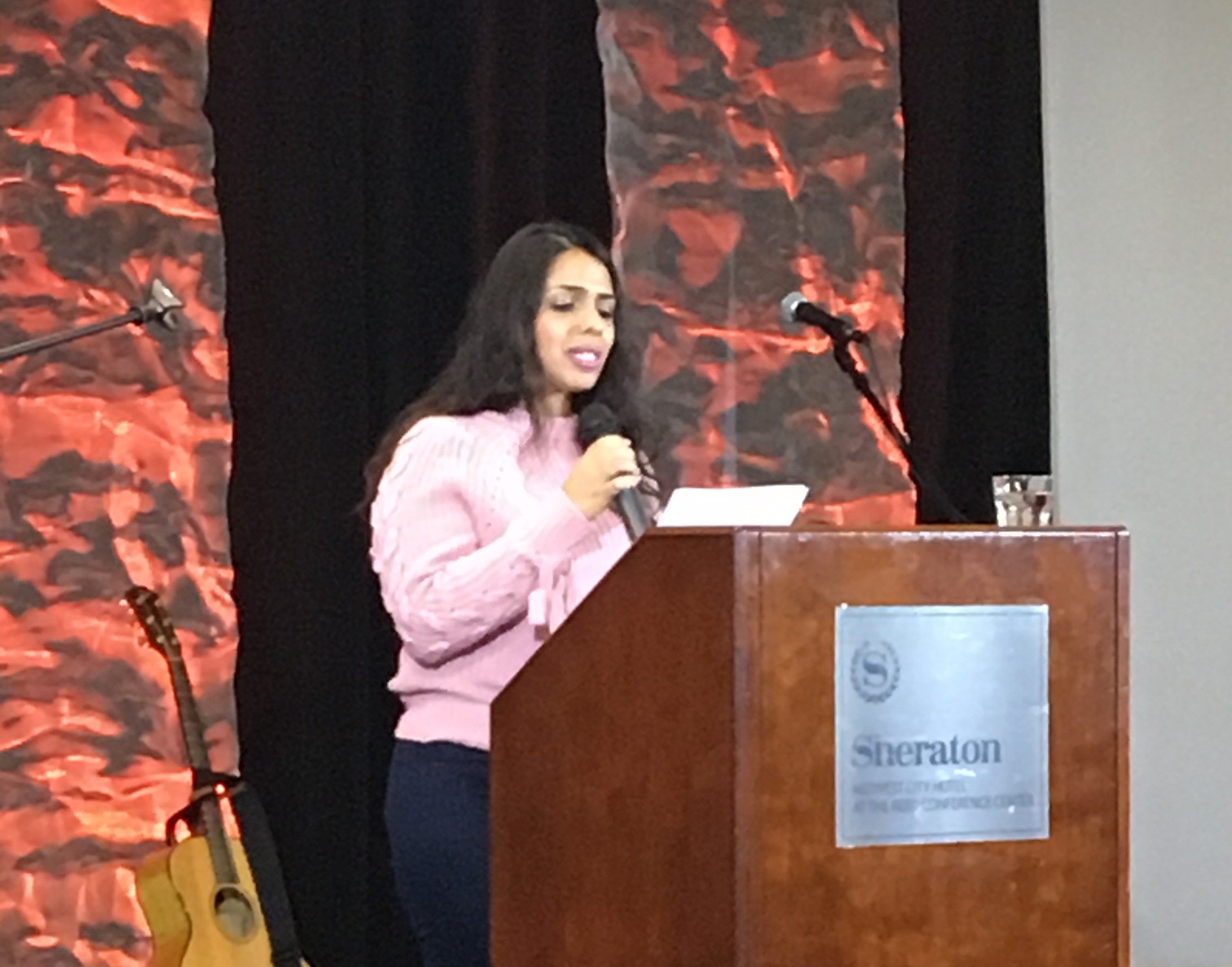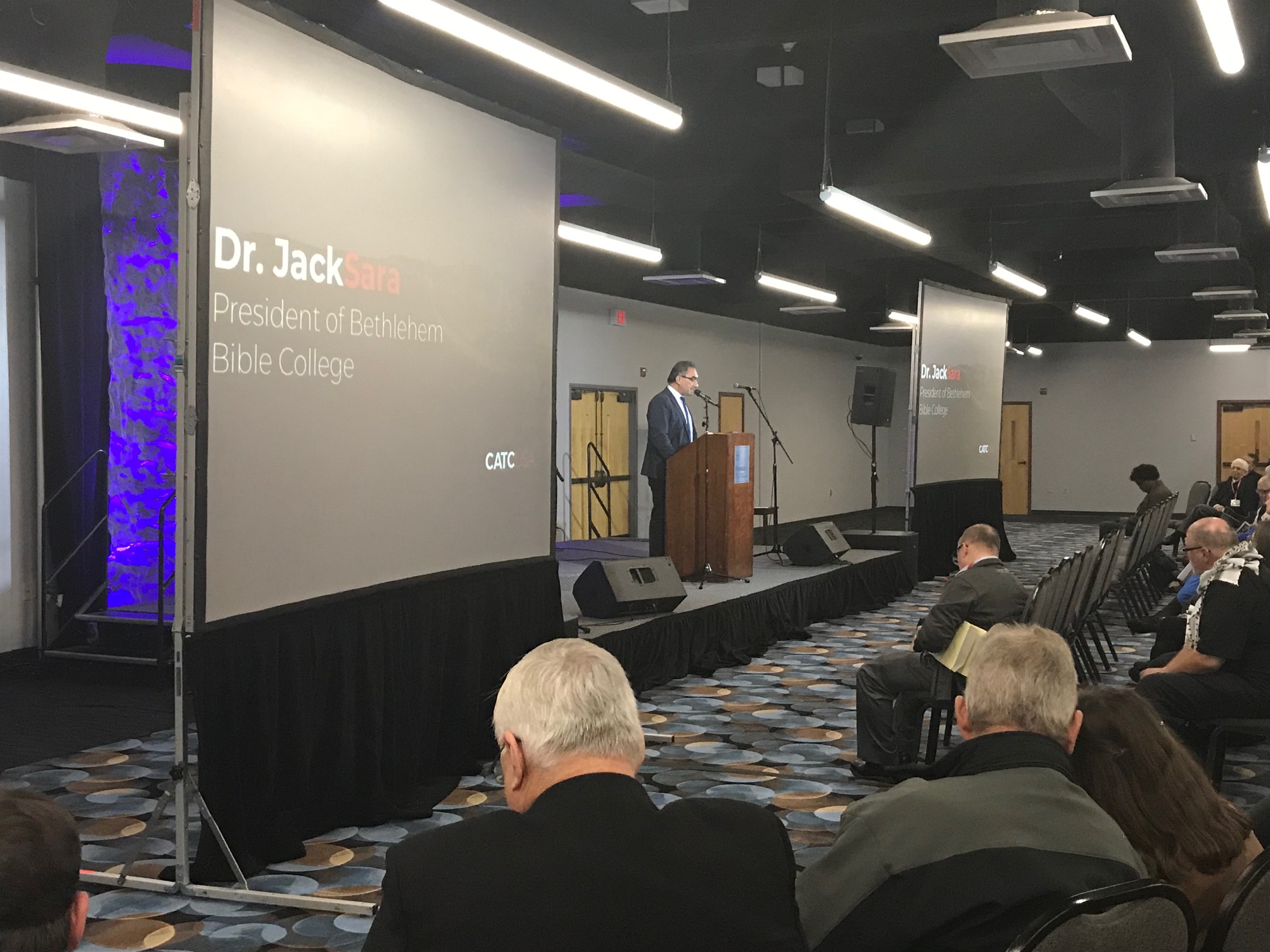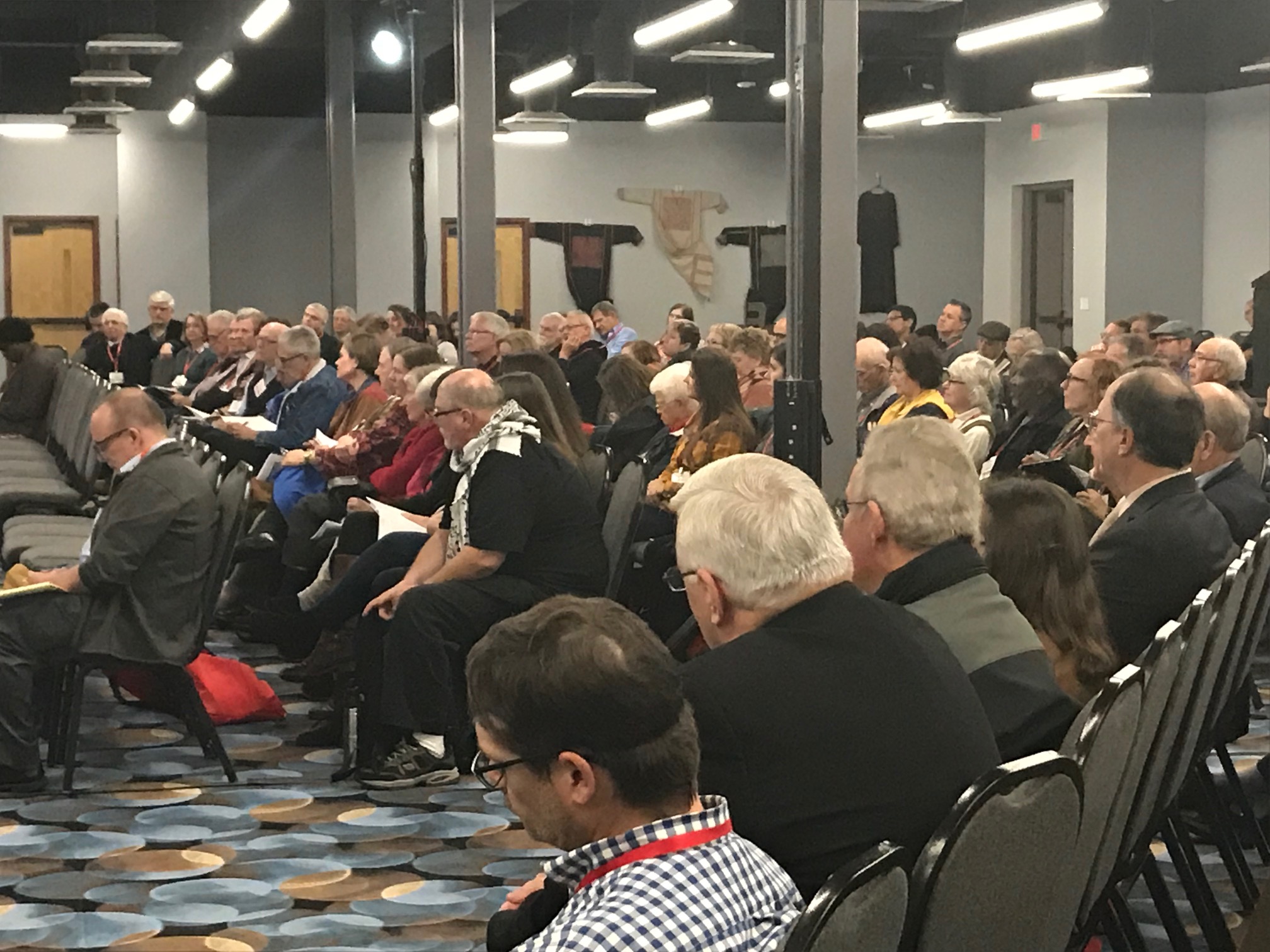
Christ at the Checkpoint Breaks Ground with First US Conference

Christ at the Checkpoint Breaks Ground with First US Conference
New ground was broken as the premier Christ at the Checkpoint – US Conference was held in Oklahoma City, October 15-18, 2018. Nearly 200 participants gathered for this event that contained the same message as CATC-Bethlehem, but didn’t require the long trip to the Middle East. Several speakers came from Bethlehem Bible College, Rev. Jack Sara, Rev. Dr. Munther Isaac, Grace Zoughbi and Michael Arteen, as well as BethBC Board Members Jonathan Kuttab and Sami Awad.
Rev. Jack Sara opened the Conference with greetings from BethBC. He focused on the Conference theme, “Holy Land Realities and Our Response,” describing how Bethlehem has faced occupation after occupation throughout its history, and now faces criticism for crying out for peace and justice. Many Palestinian Christians have lost hope after the recent actions taken by the US administration. Rev. Jack’s exhortation was, “Come, sit with us, seek reconciliation with us, help us bring joy and hope to our people!”
The Conference included diverse voices around the topics. Speakers included Dr. Mark Braverman and Rabbi Michael Davis, both of whom spoke from a Jewish perspective. Dr. Isseldin Abuelaish, a Muslim Nobel Prize Nominee and physician who, in spite of losing his 3 daughters to Israeli bombs in 2009, testified to his commitment to forgiveness as the solution to the conflict and catalyst toward peace. Other speakers represented African-Americans and Native Americans. Another highlight was hearing from Archbishop Elias Chacour, three-time Nobel Peace Prize Nominee and author of Blood Brothers, who spoke about his life’s journey through the establishment of the State of Israel until now.
One of the Holy Land Realities discussed was the theological reality informing the conflict. Dr. Gary Burge, who led morning devotions, described how “the Bible has been weaponized” by too many people, so we need to set a strong Biblical foundation. Dr. Munther spoke about Palestinian Christian Theology, which, he said, “we will write at the checkpoints, because we don’t have the luxury of writing it in libraries.” Christian Zionism and its effect on the situation was also debated through diversity. Participants engaged through presenters from both sides, and a panel discussion filled with intense theological debate.
At the end of the Conference, listeners were reminded that there are faces and names behind the conflict; that it is easy to theologize, but sometimes hard to empathize. They were encouraged to pray for the situation and fellow believers in the Land, and give support, “so that your hands will help.” Participants were challenged to both “Come and See” and “Go and Tell” about what they learned.
By Marianne Smith
